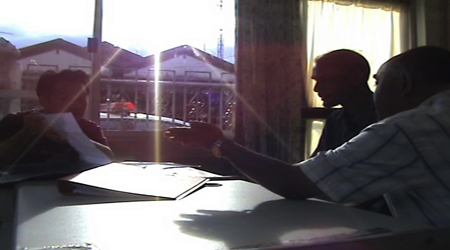Taleh family’s grievance a reflection of state injustice
"I don’t know what to say. It pains my heart. You know if the other side (the separatists) come to me and ask me to sow some spikes on the road or fell a tree to block a road, I will do it unhesitantly."

The above statement flows freely from the mouth of Sukree Taleh, a 51-year old Malay Muslim, a villager of Tambon Tohdeng, Sungai Padi district of Narathiwat, when he sat down for a talk with the Isranews agency recently about what he strongly feels to be a persecution by state authorities against his son and his family.
It is a wellknown fact that one major root cause of the unrest problem in the deep South is injustice rendered to the local Malays by state authorities, particularly injustice in justice system which was clearly reflected in the high percentage – up to 70 percent – of the cases which were thrown out of the court for insufficient evidences.
Of the 8,778 security-related cases which have entered the justice system for the past decade, there are only 2,079 cases or 23.6 percent of which the alleged offenders have been identified, arrested, charged or prosecuted. Of the remaining cases, the alleged offenders are still at large or cannot be identified.
Police standard argument to explain the above state of affairs in the justice system is that, in most of the cases, most eyewitnesses were reluctant to testify for fear of their lives and the alleged offenders were motivated by reasons other than personal revenge, conflict of interest or sex which are typical in ordinary crime cases. Hence, the difficulty of arresting the alleged offenders.
On the surface of it, the police standard argument sounds logical enough. But in the case of Sukree Taleh, that argument simply does not fit.
The truth is that for a poor villager, just to live a modest or subsistence life in the so-called red zone in the deep South is already tough enough. It is tougher when a member of a family has become a suspect in security-related charges like Sukree’s family.
In July 2009, Sukree’s house was twice raided by the police in their futile attempt to locate his son, Maarsom Taleh, on charges of murder and possessing of illegal firearms in connection with a case which occurred in Su-ngai Padi district a year before.
Sukree said he tried desperately to explain to the police that there was no way that his son could involve in a murder because he had been held in prison since 2007 on assault charges. His son, he added, would serve out his term and would be released in May 2012.
"The police did not listen. So we went to see the family of the victim and was told that the police showed them the pictures of some suspects to be identified but they did not identify anyone," said Sukree, asking "how could my son get another arrest warrant."
After Maarsom was set free from the prison in 2012, Sukree said the police still came to look for him and to ask him to surrender to acknowledge the attempted murder charge against him. Unable to stand the pressure, his son then escaped to Malaysia where he has been living until now.
Sukree said he had lodged complaints to several governmental agencies seeking justice for his son but without any success. It was until August that his complaint got the listening ears of Pol Lt-Gen Pongpat Chayaphan, commissioner of the Central Investigation Bureau. Two police officers were assigned to investigate Maarsom’s case.
The police investigation confirmed that Maarsom was still in prison by the time he was accused of committing murder. All the evidences were presented to the public prosecutor which resulted to the withdrawal of the arrest warrant against Maarsom.
Maarsom’s case is a typical of the unjust case encountered by several Malay Muslims in the deep South who may not be separatists but were falsely charged or framed up by officials.
-----------------------------------------------------------------------------------------------------------------------------------------------
Caption : Sukree Taleh (in the middle)
